Published Jan 05, 2025 • Last updated 3 hours ago • 7 minute read

Anita Dressler expressed the wrong opinion and was fired by the City of Toronto.
Advertisement 2
THIS CONTENT IS RESERVED FOR SUBSCRIBERS ONLY
Subscribe now to read the latest news in your city and across Canada.
- Unlimited online access to articles from across Canada with one account.
- Get exclusive access to the Toronto Sun ePaper, an electronic replica of the print edition that you can share, download and comment on.
- Enjoy insights and behind-the-scenes analysis from our award-winning journalists.
- Support local journalists and the next generation of journalists.
- Daily puzzles including the New York Times Crossword.
SUBSCRIBE TO UNLOCK MORE ARTICLES
Subscribe now to read the latest news in your city and across Canada.
- Unlimited online access to articles from across Canada with one account.
- Get exclusive access to the Toronto Sun ePaper, an electronic replica of the print edition that you can share, download and comment on.
- Enjoy insights and behind-the-scenes analysis from our award-winning journalists.
- Support local journalists and the next generation of journalists.
- Daily puzzles including the New York Times Crossword.
REGISTER / SIGN IN TO UNLOCK MORE ARTICLES
Create an account or sign in to continue with your reading experience.
- Access articles from across Canada with one account.
- Share your thoughts and join the conversation in the comments.
- Enjoy additional articles per month.
- Get email updates from your favourite authors.
THIS ARTICLE IS FREE TO READ REGISTER TO UNLOCK.
Create an account or sign in to continue with your reading experience.
- Access articles from across Canada with one account
- Share your thoughts and join the conversation in the comments
- Enjoy additional articles per month
- Get email updates from your favourite authors
Article content
Article content
Article content
The loss of income doesn’t bother her – she was a volunteer.
Dressler does and doesn’t like to talk about her six decades or so of volunteer work. She cherishes the connections she’s made and loves knowing she’s helped many people, but hates to think she’d be seen as a braggart.
She said she got her start with SickKids hospital as a teen. In recent years, she’s spent time on boards, advocating for seniors and suggesting how the city could accommodate people with different disabilities.
“I look at people as, ‘How can I help you?’” Dressler told The Toronto Sun. “I mean, it sounds corny, but that’s how I was raised.”
None of that mattered much two years ago, when bureaucrats devised “consequences” after Dressler asked questions about the city’s African ancestral acknowledgment.
Advertisement 3
Article content
Dressler is a proud Torontonian and treasures the city’s multiculturalism but said “to put one group ahead of another,” as she feels the acknowledgment does, “there shouldn’t be that division.”
The acknowledgment, in which slavery plays a major theme, is read at some city functions after the ubiquitous Indigenous land acknowledgment. That was the case at meetings Dressler, who lives in a North York apartment, attended as part of the senior tenants advisory committee, which reports to the Toronto Seniors Housing Corp.
“For the land acknowledgment, I was very attentive,” Dressler said. “For the African acknowledgment, I was respectful but not as attentive. I would look at the agenda that I’m gonna follow through with. And I was put to task by two people, and I said, ‘Why? You’re not respecting disabled people. You’re not respecting seniors. That’s still diversity.’
By signing up you consent to receive the above newsletter from Postmedia Network Inc.
Article content
Advertisement 4
Article content
“’You’re not respecting people that have lived here or (were) born here or anything else, or the people that fought, the veterans who fought in the war for democracy.’ They didn’t care what colour you were. They didn’t care. All they wanted was that everybody have freedom.”

Dressler wrote letters of objection to people at City Hall above her committee. She asked why the committee is “subject” to the acknowledgment given that slavery was abolished in colonial Canada decades before Confederation. She asked why a housing official followed up the acknowledgment with remarks about “white privilege,” alleging that comment violated the committee’s zero-tolerance policy for discrimination.
Recommended video
Advertisement 5
Article content
We apologize, but this video has failed to load.
The Sun obtained those messages via a freedom-of-information request — and also got the discussions that followed from senior city officials.
By spring of 2022, things had escalated, in the view of city staff with departments, including housing and seniors services, to the point that they looped in Paul Johnson, now Toronto’s city manager and then deputy city manager.
“If I may add my personal opinion – the written comments she has submitted are discriminatory, and in violation of zero-tolerance policy … Her comments are also offensive to city staff and the important work that is being done to address the ongoing impacts of colonialism and white supremacy,” Wyndham Bettencourt-McCarthy wrote to Johnson. (Bettencourt-McCarthy served as a city housing consultant at the time, but is now chief of staff to Davenport Councillor Alejandra Bravo.)
Advertisement 6
Article content
In May, another housing consultant, Vanessa Campisi, wrote to two bureaucrats with City Hall’s confronting anti-Black racism unit.
“As requested, I am sharing some emails and the PDF submission we have received from this member, again just flagging how racist the commentary/arguments/wording is throughout,” Campisi wrote. “We will discuss as a team and escalate and support (Johnson) with next steps, which hopefully will involve stronger consequences by this point.”
At least one of those “stronger consequences” was, Dressler said, her removal from the advisory committee – without anyone telling her. She said she found out when a fellow committee member called to discuss an upcoming agenda.
“I went, ‘What agenda?’ And he said, ‘Well, it came out yesterday,’” Dressler recalled.
Advertisement 7
Article content
She said city bureaucrats later told him she was no longer on the committee.
Recommended from Editorial
-

'WE DON’T NEED TO': Indigenous city staff refused one-question survey
-

Where can you park a hovercraft in Toronto?
-

Parkside Dr. speed camera vandalized for 3rd time, dumped in pond
“Because I (had) those opinions, I was basically told that I cannot be on any committees in housing. I do a lot for the building I live in, but that was that. Like, I’m the outsider because I dare say anything,” Dressler said.
“I was taken aback that all of a sudden I’m this bad, horrible person because I don’t feel it’s right to force the African acknowledgment on other people. I don’t mind (if) you say it, but don’t force it on us, and don’t get angry at us if we have a different opinion.”
Advertisement 8
Article content
Dressler said two diversity-minded bureaucrats gave her a “rough time,” and she claims one may have wanted an even tougher consequence.
Their “attitude was, you have no right to this opinion … And then you started hearing more of it, in different meetings and that. ‘Well, you people have white privilege,’” she said.
Dressler recalled a startling confrontation with one of them, a housing official: “I had one meeting with her, alone, where she had said, ‘Do you want to be evicted?’ And I went, ‘You can’t evict me for my opinion.’”
In response to questions from the Sun, City Hall responded with a brief statement, most of which explained the history and use of the African ancestral acknowledgment, which staff insist is a “voluntary recognition.”
Advertisement 9
Article content
Regarding Dressler specifically, the city statement said only: “The City of Toronto is aware of the correspondence around the topic of an African ancestral acknowledgment shared as part of a freedom-of-information request. This exchange, involving a city volunteer, occurred in 2021 and 2022.”
After being asked to specifically address the alleged eviction threat, the city said it is “aware of the correspondence amongst these employees and will be investigating the matter further. We cannot comment on the contents of a private conversation between two individuals.”
Dumped by the housing committee, Dressler decided to throw herself into more board work with the TTC. In December, the TTC board presented her with a plaque for her work on the commission’s advisory committee on accessible transit.
Advertisement 10
Article content
After three years at the helm, and eight years in total, outgoing Chair Anita Dressler was thanked by our Board for her invaluable contributions to the #TTC’s Advisory Committee on Accessible Transit. pic.twitter.com/raBHOAfj85
— TTC Media Relations 📰🚌🚋🚈 (@TTCNewsroom) December 3, 2024In spite of everything, Dressler said she has reapplied for the housing committee.
“They’ve never called me … It’s like, you didn’t apply type of thing,” she said. “I’m not angry. I’m disappointed. I don’t carry anger well … I am disappointed that they’re not even acknowledging it.”
She told the Sun all she really wants is for City Hall to let her continue to do good, free work – and if they won’t, at least the people keeping her out could be decent enough to admit it.
“I’ve helped people go to tribunals. I’ve helped people get settled in. I’ve gotten them modified apartments. I do what I can,” Dressler said.
“If I’m rejected, I’m rejected, but at least I would like to have an email saying, ‘We feel that you’re a troublemaker,’ or ‘We feel that you don’t have our values,’ or something.”
Advertisement 11
Article content
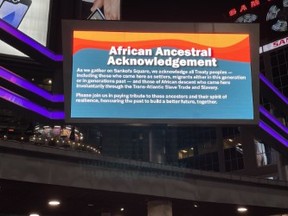
WHAT IS THE AFRICAN ANCESTRAL ACKNOWLEDGMENT?
The City of Toronto’s African ancestral acknowledgment dates to May 2018, when it was introduced by the municipal government’s confronting anti-Black racism unit after “extensive consultations with African and Indigenous elders” and others, the city said in a statement to the Sun.
However, a municipal document refers to the concept as something much older, “a centuries-old welcome salutation to open meetings, gatherings and events in a good way.”
Despite that history, many Torontonians have only learned of it recently, after it began being displayed on screens at Sankofa Square in August.
The acknowledgment is “an educational tool,” the municipal document says, that “helps us understand the unique history, presence and contribution of people of African descent to the City of Toronto.”
Advertisement 12
Article content
“There is no rigid format or single standard way to deliver the acknowledgment,” it adds. “Recognition and respect are (the) key drivers.”
But that doesn’t mean there aren’t rules.
“The present African ancestral acknowledgment is intended to be delivered by a person of African descent who connects their historical lineage, heritage and ancestry to the victims and survivors of the transatlantic slave trade and slavery,” Diala Homaidan, of the city’s social development department, wrote in April 2022 in an email acquired by the Sun in a freedom-of-information request.
“It is important to recognize that an African ancestral acknowledgment and an Indigenous land acknowledgment are two separate and distinct recognitions. The … acknowledgment should not be read, delivered or considered an add-on to land acknowledgments or merged with them.”
In a January 2022 email, Kemba Byam, manager of the anti-Black racism unit, told a colleague who works in procurement that starting meetings with the acknowledgment is “voluntary.”
“So, yes, it should be done, but is not compulsory,” Byam wrote.
The city told the Sun in a statement that staff are preparing a 10-year anti-Black racism plan that is set to go before council this year.
Article content

 5 days ago
2
5 days ago
2








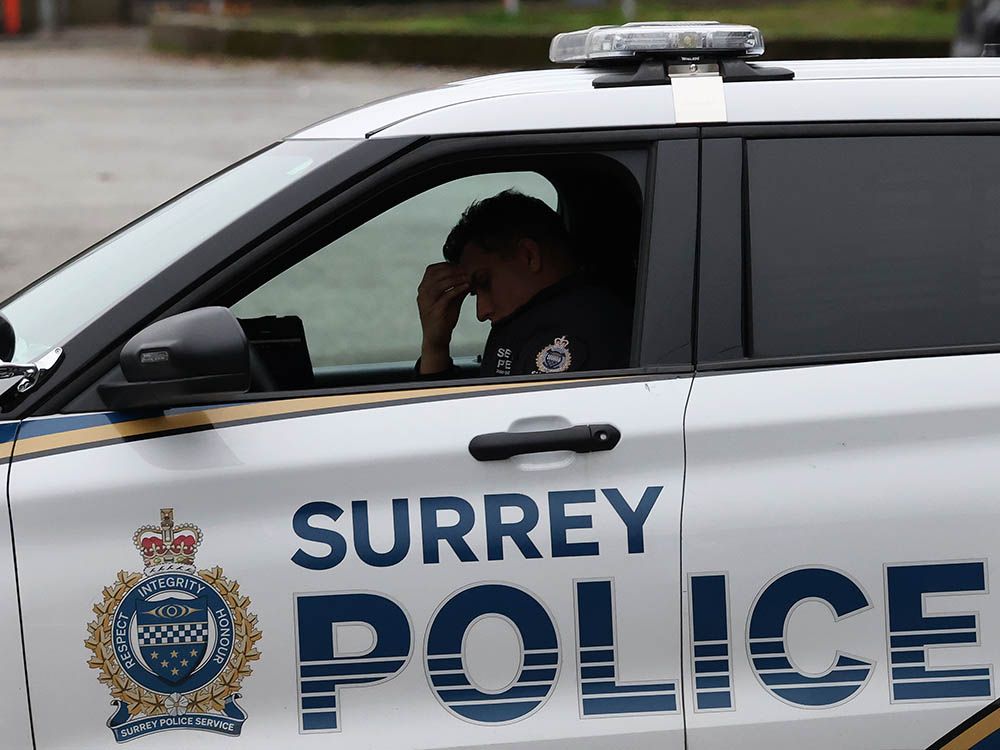




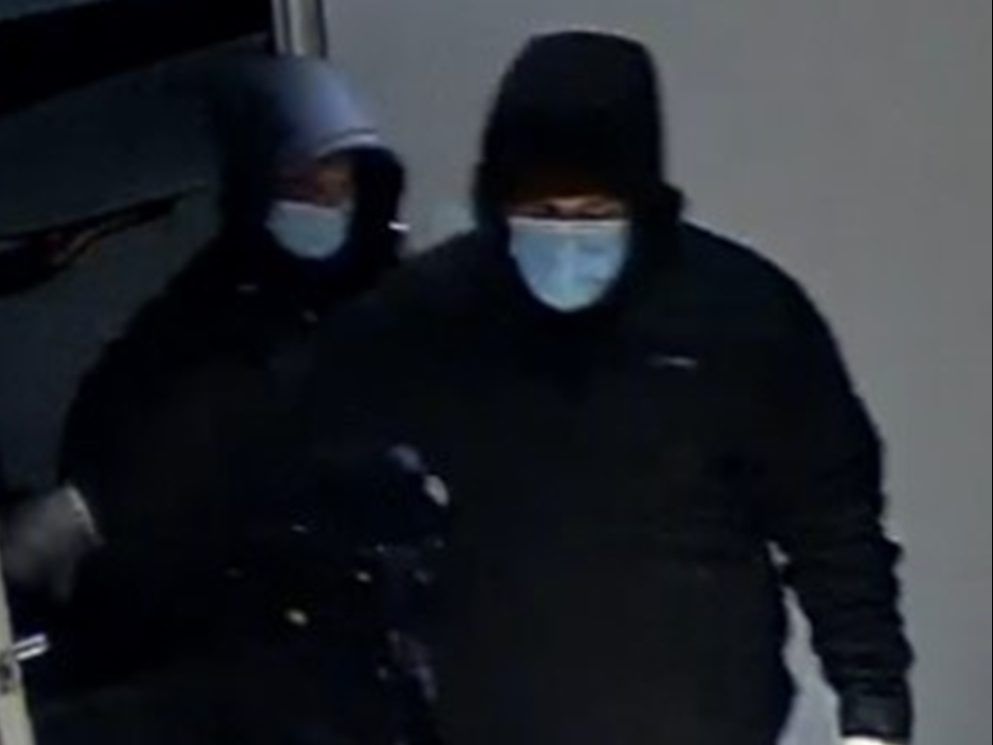

.png)















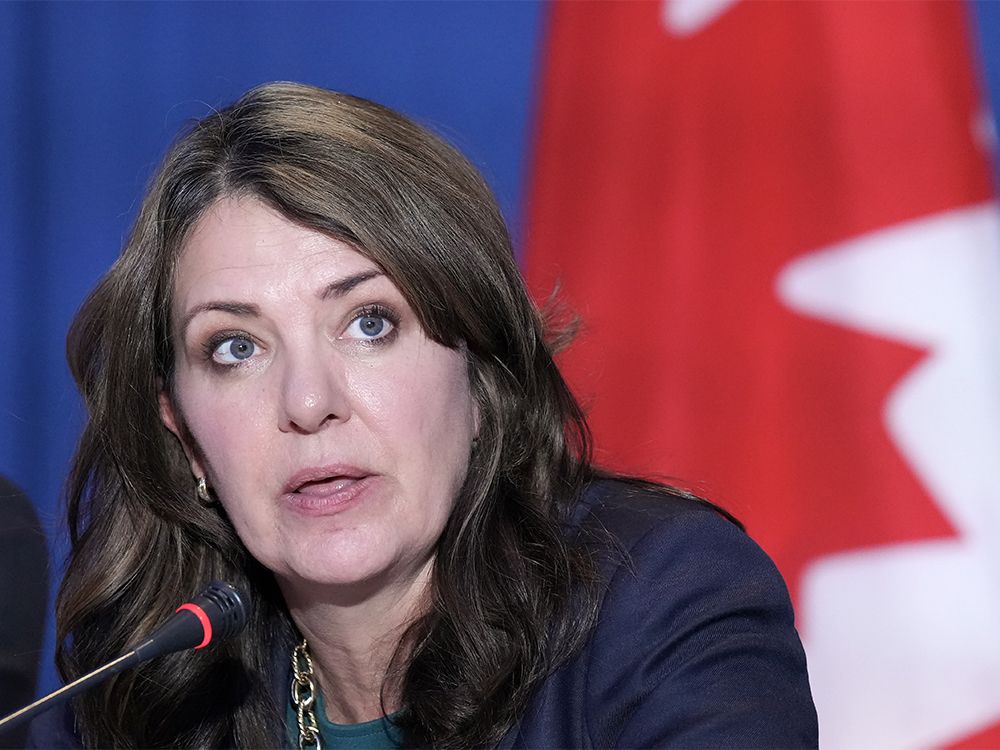
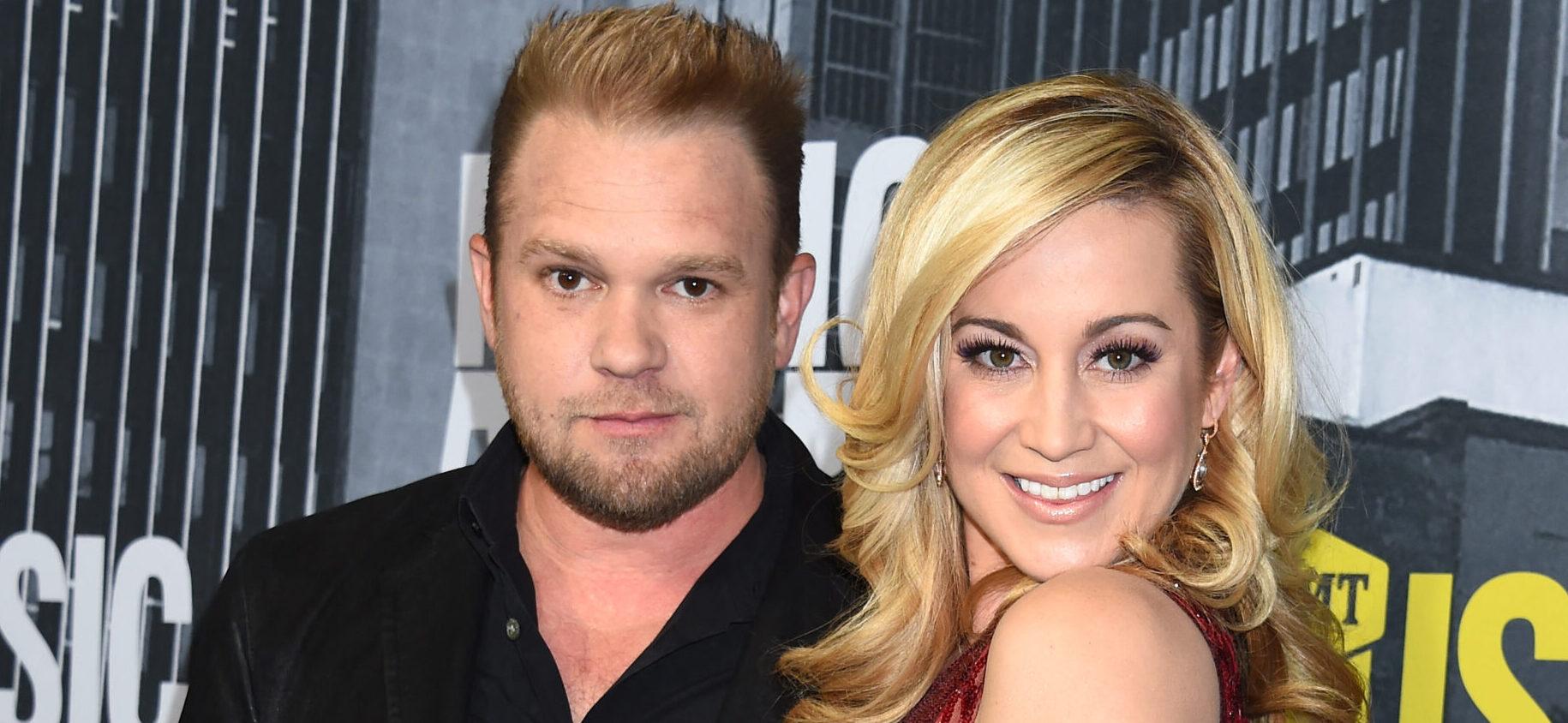


 Bengali (BD) ·
Bengali (BD) ·  English (US) ·
English (US) ·